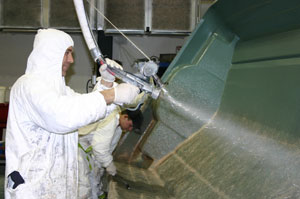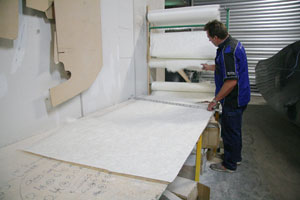Composite Engineer
Tasks & duties

Composite engineers may do some or all of the following:
-
liaise with customers and take orders
-
design products to meet clients' specifications
-
build full-size models and create moulds
-
fill the moulds with a pre-mixed resin (liquid compound)
-
apply fibreglass to the moulds
-
separate the moulds from the resin and fibreglass
-
trim and shape the final products
-
order the necessary materials for the factory
-
identify any possible hazards in the factory and record them in a safety log
Skills & knowledge

Composite engineers need to have:
-
knowledge of how to work safely with engineering tools and machinery
-
knowledge of different chemicals and compounds
-
technical and practical skills for creating and repairing composite (fibreglass) products
-
skill in interpreting plans and drawings
-
basic maths skills for measuring and making calculations
-
time-management skills
-
good communication skills
Entry requirements
There are no specific educational requirements for becoming a composite engineer, and skills are gained on the job. Most people begin as an apprentice and study towards a National Certificate in Composites – Level 4. Details about apprenticeships are available from the Boating Industry Training Organisation.
Secondary education
Although there are no specific secondary educational requirements, School Certificate or NCEA equivalent maths and science is recommended. Technology may also be useful.
Useful experience
Useful experience for composite engineers includes:
-
work in a composites factory or workshop
-
work with basic engineering equipment such as welders, lathes and power tools
-
work as a mechanic
-
woodworking experience
-
panelbeating and spray-painting work
Related courses
Ceramics, Industrial Glass and Rubber Manufacturing
Materials Engineering
Plastics Processing Technology
Sponsors include
For more information, please refer to Career Services.
Document Actions
